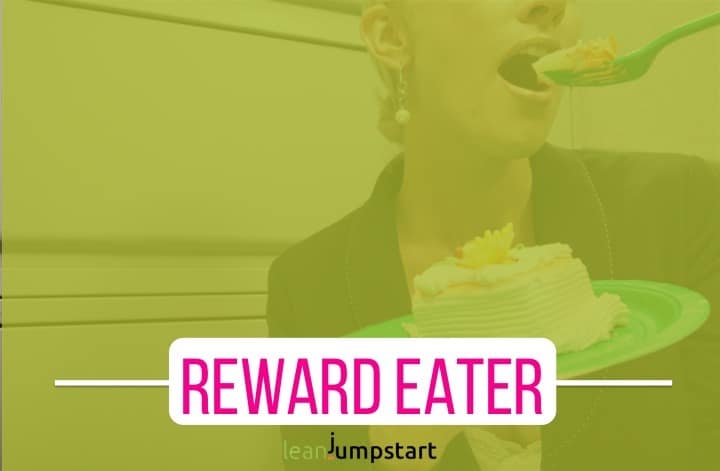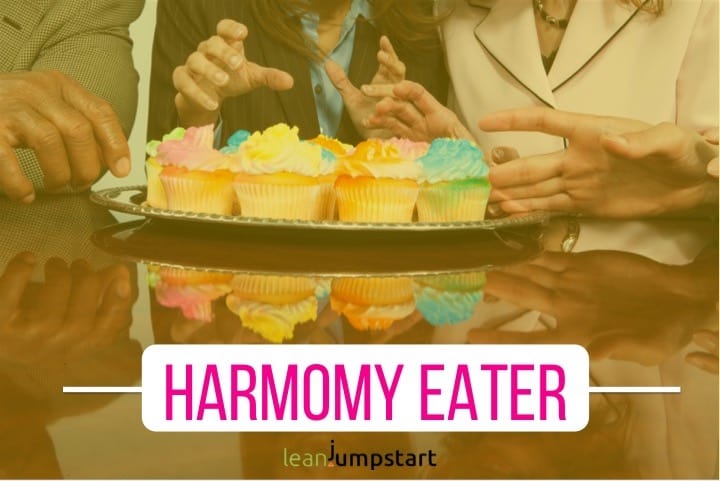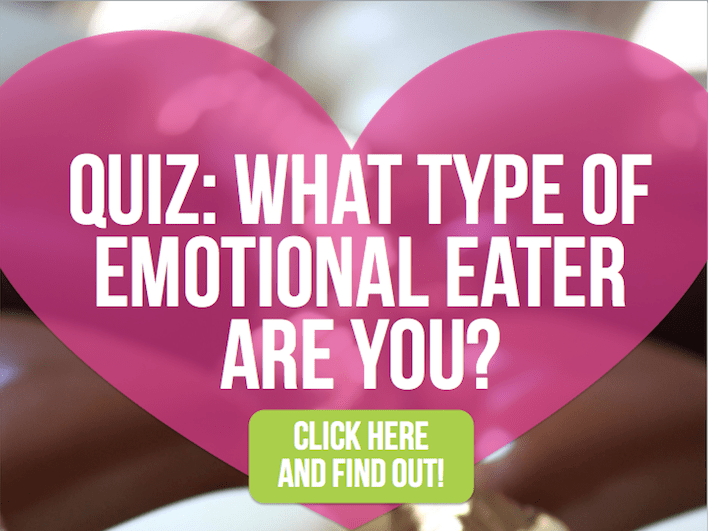Last Updated on January 6, 2019
Are you an emotional eater who regularly craves for chocolate, pizza , ice-cream or other highly palatable foods? Do you sometimes eat more than your body needs in response to emotional triggers, although you love real food and try to omit processed food whenever you can?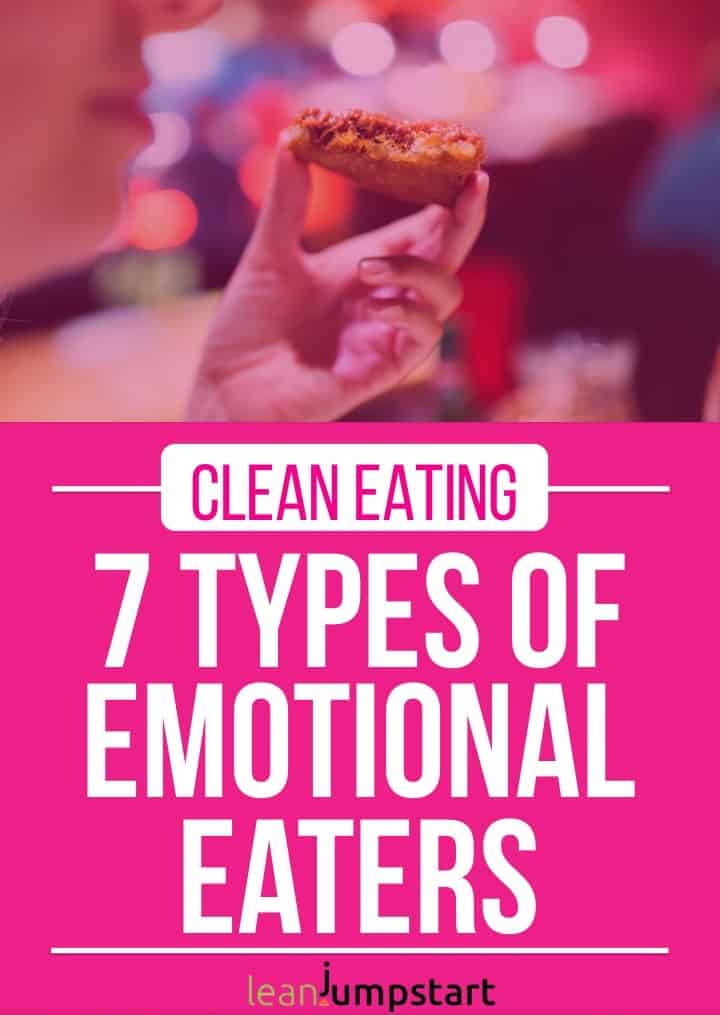
Identifying your type of emotional eater can help you pinpoint weak points, making it easier to see areas that need addressing. I’ve just created an online quiz that can help you find out what type of emotional eater you tend to be. Click here to enter the quiz!
But, maybe you can already identify specific patterns, if you read the short descriptions below, they may allow you to view your eating experience through a different lens.
I’ve grouped emotional eating or stress eating into seven categories of emotional eater that seem to be most common with women.
1. The Reward Eater
Reward eaters are very diligent people and eat when they are stressed, overwhelmed, overloaded or overdriven. Many busy women over 40 fall into this category. They seldom delay unpleasing tasks or problems, but tackle them systematically and stick to their goals until the end. In this time, they are quite stress resistant.
After the work is done however, they follow the motto: ”If nobody else sees how productive I was, I want to at least treat myself with something good.” In the same way as the reward eater wants to treat himself for his achievements, he is soon annoyed after his uncontrolled (over)eating or binge eating attack. In consequence, stress increases and the reward eater risks to enter the vicious cycle of stress and reward.
2. The Harmony Eater
Other names for harmony eaters that can be found in science are “influenced eaters” or “self esteem eaters”. As ”people pleasers“ they find it difficult to say no. Also, harmony eaters don’t want to draw attention to the fact that they are trying to lose weight. They love socializing, but struggle with assertiveness and get massively stressed out by others at parties, get-togethers, etc. Office environments can also be challenging for them, particularly if they have to walk past chocolates, cakes and biscuits.
As harmony eaters, they have the tendency to avoid or push down thoughts, feelings, or situations that are uncomfortable.Their Motto: “Only when I eat quickly and plenty I am accepted and well regarded.” Harmony Eaters seldom leave out a second helping or refuse an invitation for coffee and cake. They feel socially obliged to eat and drink what everyone else is eating and drinking. A refuse means for them, an as massive stress, as eating less than others.
3. The Bored Eater
Bored Eaters eat when they are bored – this can be at their desk, in front of the TV, in the car – just because it’s the pattern they always follow. They pay little attention to when they are eating and aren’t aware when they are full. For them the only thing that seems to help pass the time is to eat.
Other triggers for bored eaters might be frustration (e.g. under-challenge, office prison) and the feeling of inner emptiness. Eating when bored seems to be one of the most common types of emotional eating according to a study from Afton M. Koball of the Psychology Department at Bowling Green State University.
4. The Lonely Eater

5. The Anxiety Eater
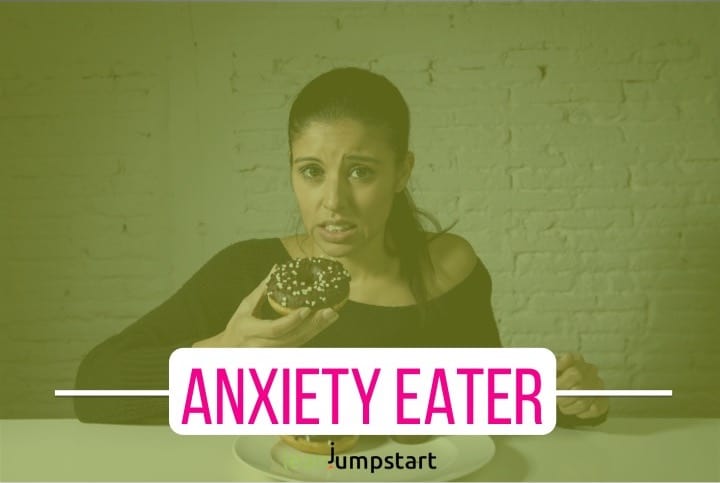
She may be aware that she may feel guilty, depressed, or disappointed after overeating, but for that individual, the trade-off is ok – at least she no longer has to feel the strong anxiety that was initially felt and that she is found to be highly distressing or intolerable. As fear is one of the strongest stress triggers, we know that it can radically modify our hormone system. In consequence important messengers that are keeping the appétit in balance are not produced in sufficient quantity. The anxiety eaters are sitting in a so-called “anxiety trap” and try to free themselves from it with food.
6. The Tired Eater

7. The Binge Eater
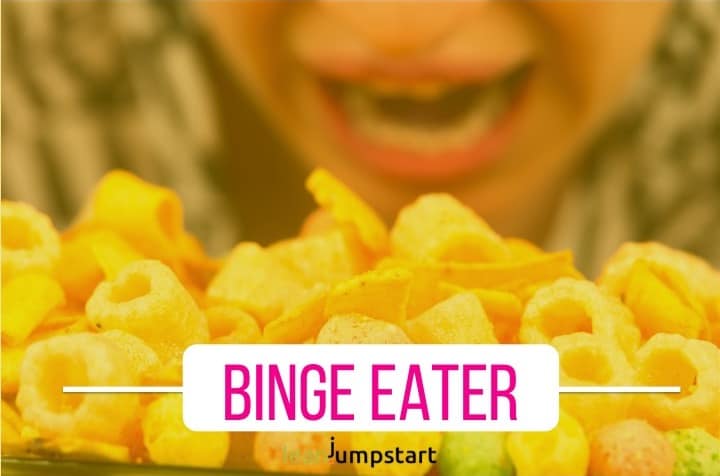
Typical for a Binge Eating Disorder are regular episodes of eating an objectively huge amount of food in a relatively short amount of time with the impression of loss of control during the eating episode, with accompanying impairment and distress in one’s life (i.e., social functioning, health work performance). A binge eating disorder (BED) is a classified and diagnosed mental illness that should be evaluated by health professionals.
What’s your type of emotional eater?
Very few people fall perfectly into one of the seven categories of emotional eater and may engage in more than one. Also, it’s important to be aware that different circumstances demand different approaches. Realizing that you have to respond to emotional hunger dependent on the circumstances is a first crucial step. The next step is to find out what type of emotional eater you tend to be. Click below to start the free test. You’ll not only get detailed results but also a smart action plan helping you to find your best strategies to overcome emotional eating habits!

